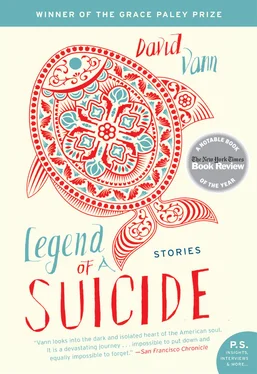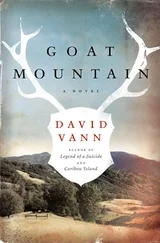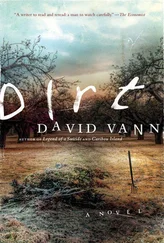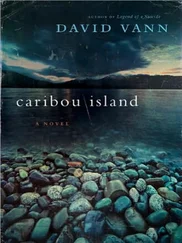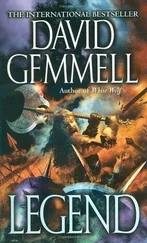David Vann - Legend of a Suicide
Здесь есть возможность читать онлайн «David Vann - Legend of a Suicide» весь текст электронной книги совершенно бесплатно (целиком полную версию без сокращений). В некоторых случаях можно слушать аудио, скачать через торрент в формате fb2 и присутствует краткое содержание. Год выпуска: 2009, Издательство: Penguin Books Ltd, Жанр: Современная проза, на английском языке. Описание произведения, (предисловие) а так же отзывы посетителей доступны на портале библиотеки ЛибКат.
- Название:Legend of a Suicide
- Автор:
- Издательство:Penguin Books Ltd
- Жанр:
- Год:2009
- ISBN:нет данных
- Рейтинг книги:3 / 5. Голосов: 1
-
Избранное:Добавить в избранное
- Отзывы:
-
Ваша оценка:
- 60
- 1
- 2
- 3
- 4
- 5
Legend of a Suicide: краткое содержание, описание и аннотация
Предлагаем к чтению аннотацию, описание, краткое содержание или предисловие (зависит от того, что написал сам автор книги «Legend of a Suicide»). Если вы не нашли необходимую информацию о книге — напишите в комментариях, мы постараемся отыскать её.
follows Roy Fenn from his birth on an island at the edge of the Bering Sea to his return thirty years later to confront the turbulent emotions and complex legacy of his father's suicide.
Legend of a Suicide — читать онлайн бесплатно полную книгу (весь текст) целиком
Ниже представлен текст книги, разбитый по страницам. Система сохранения места последней прочитанной страницы, позволяет с удобством читать онлайн бесплатно книгу «Legend of a Suicide», без необходимости каждый раз заново искать на чём Вы остановились. Поставьте закладку, и сможете в любой момент перейти на страницу, на которой закончили чтение.
Интервал:
Закладка:
“What mistake?”
I might have given up if not for the fact that he was the only father in the world, the narrow remnant of all those suitors and potential suitors. I worked with what I had.
And what I had was this: a sulky thing, easily wounded, that sat at a card table in a dental smock and made promises: “Let me help you there with the noodles. Your mother never understood me; there’s more to what happened than she thinks. I could make the salad. Would you like me to make the salad?”
The father had receding gray-blue eyes and various minor aches and pains. When he was cheating on the current girlfriend, there was always diarrhea in the mornings. Spring and fall, he had allergies. When he thought about money, about all the shaky, hasty investments over the years, a thin trail of intense pain rose from behind his right eye and spiraled across his forehead.
Occasionally, jarred for a moment, the father would realize I had a separate existence and fire off a few questions of his own.
“How’s that girl you’re seeing, what’s her name?”
“We broke up in August, Dad. It’s November now.”
“Huh.” But he rallied quickly. “Do you remember the tractor?”
“What?” I asked.
“The green tractor, you know. I used to give you rides on it when you were little. Do you remember anything like that?”
“No. I don’t think I do.”
Then there was the trip to the mall. The father was very nervous about this. A present was needed for current girlfriend’s birthday.
“I don’t know,” he said, which communicated several things: no gift meant no girlfriend, no girlfriend meant landing once again like minestrone, landing once again like that meant a lifetime of guilt, shame, and general self-hatred in the one responsible, which would, of course, be me.
“I’d love to do it,” I said.
Once in the domain of hair spray and Lycra, I buoyed a cowering thing with remembrances of hunting trips past. I spoke the well-known tales of the buck at close range who had leaped over my bullet and vanished in the brush. I spoke of the wild boar who had sneaked up from behind when I was armed only with binoculars, who chased me along razor-backed ridges till I nearly fell (the small stones twisting out over the edge), whom I escaped only by stretching across the top branches of the only tree, an oak barely ten feet high. Neither the buck nor the boar had ever existed, of course. I had fired that shot into blank air. The pig, also, had been born alchemically of boredom, pride, fancy, and innate terror.
“You’ve had some amazing experiences, all right,” the father said as he gazed at the behind of a junior higher, causing a moment’s doubt in me: a liar, after all, would be the thing most likely to know another liar.
But the father was buoyed, in any case. “Let’s go hunt down a necklace, maybe,” he said, “or some other kind of ornament.”
For the rest of the afternoon, we ran our trigger fingers over every piece of gold and silver the mall could provide. The bowed legs of the father became nimble, and his tongue was loosened.
“Did I ever tell you I wanted to be a painter?” the father asked.
“You?”
“Sure. I was a kind of Brueghel with less patience.”
I thought about that for a while. Then I asked, “What else?”
“What do you mean, what else?”
“What else should I know about you? I know very little, you know.”
“Well, son, let me tell you everything.”
The father never told me anything, of course, but looking back, I can see that I felt closest to the father on that very afternoon. Perhaps it was only gestures — the way the father hitched up his jeans, his sideways grin at the spiel of a salesman, the gratitude and love I thought I saw in certain small movements of the eyes — but even if these indices were only imagined, they did seem to provide what I had wanted for a very long time.
Looking back, I can see also that the father reached a kind of high point that afternoon in the mall. I could say, even, that the father soared once more over the city. Well pleased with a choker in three colors of gold, not suspecting the inevitable plummet to come, as if the downward spiral of his life had been arrested for a moment, the father climbed a display case in the corner of Oshman’s, and, as I distracted the salespeople by smacking a squash ball again and again against the far wall in a two-player match for one, he strapped himself into the harness of a hang glider strung from the ceiling. He wore a yellow fluorescent windbreaker and sporty strapless helmet, gave me the thumbs-up, and soared.
My mother, of course, had predicted the entire series of inevitable plummets in the father’s postmarital life.
“Some things never learn,” she said. “If your father were a lemming, he would climb back up the cliff just to go over again.”
Perhaps we never were generous enough to the father. A father, after all, is a lot for a thing to be. That sounds bitter, I suppose, but I don’t mean it to be bitter; there were times when the father showed me most clearly what I would become, and that, certainly, is a kind of gift, if not always a blessing.
Currently the father is a small slab of granite planted near my mother’s cottage, in a field of wild grass and ice plant by the sea. Mother likes to have him near and claims their conversations have improved.
“I don’t have to be angry anymore,” she says. “I can feel sorry for him now and do the old-woman-rich-with-memories-and-longing routine. Though occasionally I give it a rest.”
The small slab of granite suits my own needs fairly well, also. I bring flowers and sit with him, just like the old times, except that now I don’t have to fix spaghetti. I listen to the self-shredding waves, squeak a finger of ice plant between my own, gaze into the higher blue, and sometimes, when among the upper currents I catch the hint of a hopeful, insistent flapping, I almost imagine the father has come finally to life.
ACKNOWLEDGMENTS
JOHN L’HEUREUX HELPED me most in shaping these stories, and also in shaping my life. Michelle Carter helped enormously, also. The truth is, I received more generous help from great writers than any young writer could hope for. Grace Paley and Adrienne Rich sponsored me for an early writing grant (run by Laura Selznick) when I was an undergrad at Stanford. In grad school at Cornell, Stephanie Vaughn and Robert Morgan tried to help me see how the stories might become a book. Mike Curtis at The Atlantic published my first story, “Ichthyology,” and Kim Witherspoon gave me early encouragement. When I returned to Stanford as a Wallace Stegner Fellow, Toby Wolff, who had long been my favorite writer, encouraged me also.
I’ve been lucky, in other words. I’m grateful to Gail Winston and many others at HarperCollins, grateful also to the folks at the Association of Writers and Writing Programs and at UMass Press, for first putting this book into print. It’s especially nice that it’s a prize in Grace Paley’s name, since she was such a great teacher and inspiration. I still think of all she taught us, including that “Everyone, real or invented, deserves the open destiny of life.”
I owe a debt, also, to a lot of writers I don’t know whose works inspired these stories. Marilynne Robinson and Elizabeth Bishop, most of all, but also Annie Proulx and Cormac McCarthy and others.
I want to thank David Forrer for his tireless work and constant good humor, Stewart O’Nan, Robert Olen Butler, and Noy Holland for their generous endorsements, and also thank the National Endowment for the Arts for a Creative Writing Fellowship in 2008. University of San Francisco, where I currently teach, has also been tremendously supportive.
Читать дальшеИнтервал:
Закладка:
Похожие книги на «Legend of a Suicide»
Представляем Вашему вниманию похожие книги на «Legend of a Suicide» списком для выбора. Мы отобрали схожую по названию и смыслу литературу в надежде предоставить читателям больше вариантов отыскать новые, интересные, ещё непрочитанные произведения.
Обсуждение, отзывы о книге «Legend of a Suicide» и просто собственные мнения читателей. Оставьте ваши комментарии, напишите, что Вы думаете о произведении, его смысле или главных героях. Укажите что конкретно понравилось, а что нет, и почему Вы так считаете.
